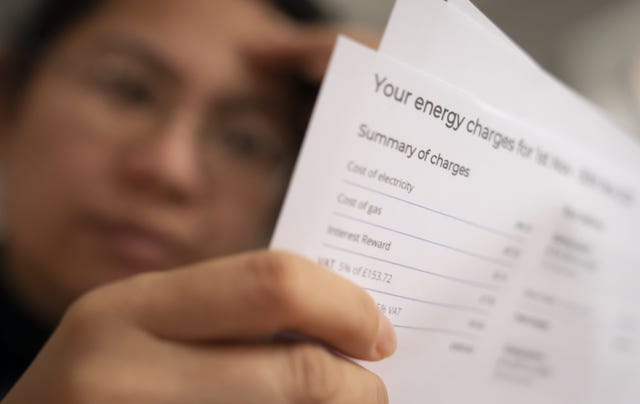Labour to borrow £3.5bn a year to help fund green policies
Extra borrowing will be ‘within fiscal rules’, the party says, and comes alongside a £1.2 billion windfall tax on oil and gas giants.

Labour has said it will borrow £3.5 billion a year to help fund its energy and climate change policies.
At its manifesto launch on Thursday, the party said the extra money will go towards setting up its previously announced state-owned energy investment company, Great British Energy, estimated to cost £1.7 billion a year.
Labour said the borrowing figure is within the party’s self-imposed “fiscal rules”, which demand that national debt will fall compared with the wider economy in five years.
It comes on top of previously announced plans to impose a windfall tax on oil and gas firms such as Shell and BP, which will bring in £1.2 billion a year.
The plans mean Labour will have £4.7 billion in annual funding for green policies, according to the manifesto.
The cash will also help pay for its £1.1 billion a year so-called Warm Homes Plan to offer homeowners grants and loans to help pay for insulation and solar panels, all of which has already been announced.
The manifesto stopped short of mentioning heat pumps, which have become a battleground between Labour and the Conservatives after Rishi Sunak weakened government plans to phase out new gas boilers by 2035, instead aiming for only an 80% phase-out.
Instead, it referred to improving homes via “low carbon heating”, which could include heat pumps, as well as green solutions including district heating.
The document said that “nobody will be forced to rip out their boiler as a result of our plans”.
It also reiterated that it will not issue new licences to explore new oil and gas fields in the North Sea.
“They will not take a penny off bills, cannot make us energy secure, and will only accelerate the worsening climate crisis,” the manifesto said.
Energy regulator Ofgem announced in May that average energy bills will fall 7% this summer, but bills are set to rise again this winter in line with wholesale gas costs.
Alasdair Johnstone from the Energy and Climate Intelligence Unit said: “Insulating homes so they don’t waste energy, switching from gas boilers to electric heat pumps and accelerating the build-out of British offshore wind, will help to stabilise bills.
“At a time when North Sea oil and gas output is continuing its inevitable decline these measures will do much, much more for the UK’s energy security than new exploratory drilling licences might,” he added.
“But with the US and EU now implementing policies and incentives to compete for these clean industries, the UK will need to do much more to secure the investment that will maintain that growth.”
It comes after Labour walked back on a so-called green prosperity plan in early 2024, which would have seen it spend £28 billion a year on green policies and investment.
Instead, the party is focusing on policies including Great British Energy, a state-owned investment vehicle that will put cash into green projects alongside the private sector, such as floating offshore wind farms.

Lizzy Galbraith, political economist at asset manager Abrdn, said: “Labour has emphasised its commitment to renewable energy, decarbonising homes and upgrading the national grid.
“However, the strategy now leans more on leveraging private sector funding, with public investment playing a reduced role.
“The party still plans to establish a £7.3 billion national wealth fund to support these initiatives from the public side, aiming to attract £3 of private investment for every £1 of public funding.
“GB Energy will also support these efforts though the distribution of grant funding and financing smaller renewable energy projects.”





